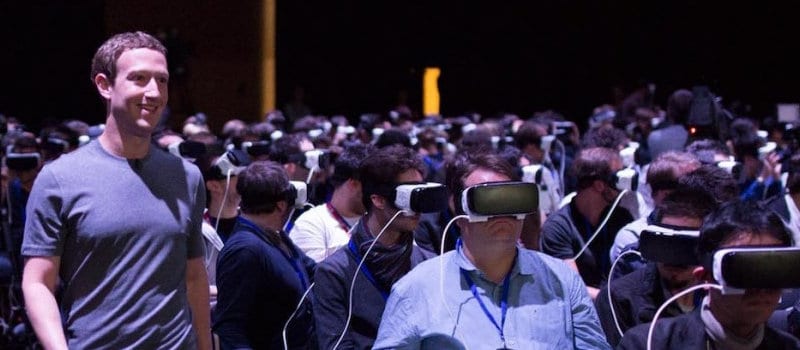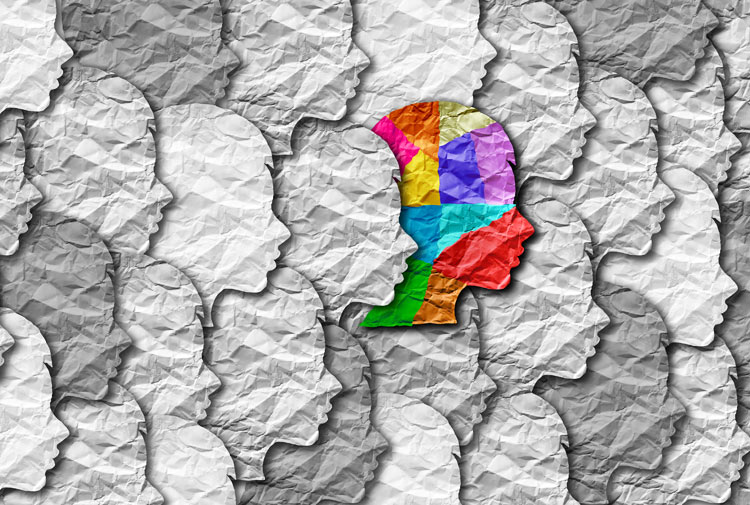Work in VR
COVID-19 caused a monumental shift in how we view work and employment. The sudden closure of thousands upon thousands of workplaces and the implementation of months-long lockdowns forced the general public to find a new way to get things done. Enter: Remote Working. What was first seen as a somewhat frustrating and inconvenient necessity in pandemic times has become a staple in our lives. Working from home is not a new concept whatsoever, the internet has been allowing thousands of people to work from wherever they need for years, and it was only becoming more and more popular, but the pandemic caused a totally unprecedented spike in demand. (Government of Canada)
 |
|---|
In regards to the metaverse, this is also why Meta may succeed where Second Life failed. The concept of holding an online meeting via a simulated environment was alien in 2007, but today it happens everyday, albeit not in as sophisticated a manner as Meta is proposing. Even those who did not grow up with the internet have been forced to learn how to navigate Zoom and Microsoft Teams meetings in order to cope with these recent changes.
As well, there is considerable inceptive for companies to make the shift to totally virtual workspaces, the infrastructure of a physical office can be expensive, and it would certainly cost less to operate entirely in the metaverse. As well, while the ethics may be questionable, a company can have much more control over their employees in a virtual environment. While it is all still in the early stages of development, and therefor nothing is known yet, a company could have access to a considerable amount of knowledge regarding their employees’ actions during their work day. While its common for companies to monitor their employees; internet activity while they are at work, this open up a whole new world of surveillance possibilities. Employers could monitor every action that employees partake in throughout the day, as they could have a part in controlling and surveying the entire universe the job takes place in. In a traditional environment, an employee may make an off-hand comment about their boss to their co-worker while their boss is out of the room, and their boss will never know, but if their boss controls their reality? That would immediately squash even the minutest instances of dissent.
 |
|---|
| Marc Zuckerberg at the Meta press conference |
The prospect of a fully simulated digital workspace would also alter the relationships between the employees themselves. While again, it would depend on the configuration of the virtual environment, it seems that it would deter people from forming friendships with their coworkers. While it is now common for people to meet and form relationships with people over the internet, anyone who has worked or gone to school online can attest that meeting someone online is completely different from in-person, and to form a relationship takes a considerably larger amount of effort and time. Would people even bother to get to know each other? What happens in the case of poor management or employee exploitation when you cannot even discuss it with your co workers because you barely know each other and also your boss can see everything you say? Would unions even be able to exist?
This isn’t even to say anything about those who still work in-person jobs. Obviously there would still need to physical labour done in order to make society run properly. That is, unless we achieve full automation and never have to leave our houses again. At beginning of the pandemic, we saw countless “shows of support” for essential workers, with people banging pots and pans, putting up signs, and participating in other big public displays of support. However, these shows of support rarely included actually paying them more. Currently, half of low-wage workers in America are considered “essential.”(Kinder) This means they’re restaurant employees, public service workers, delivery drivers, etc. Despite the fact that they kept society moving for months while everyone else stayed inside, they made considerably less money while also being at much higher risk of getting sick.
Hopefully, by the time Meta’s metaverse is ready for practical use, the health risk will be less of a factor, but as it stands, those that will still work in the real world will likely make much less money in general. This adds a class element to the metaverse. While there will likely always be a class element to technological innovations due to tech usually being quite expensive when it first becomes available, the possibility of an entirely different reality for those who can afford it adds an extra element to that. How will class dynamics change when you don’t even have to see those that run the world anymore? In the past, if you could afford to take a taxi or drive your own car to your job instead of taking public transit, you might still at least have to see those in a lower class on the sidewalk or from your car window, but without that, you could totally remove them from your daily life.
 |
|---|
In general, the possibility of a fully simulated working environment points us in a direction of hyper-individualism. If we solely experience work through a headset strapped to our eyes, fully controlled by a mega corporation (Also note that for the sake of brevity I have chosen to neglect Meta’s various controversies regarding information sharing and fuelling of hate-speech, but it is also certainly a concern) then not only may we lose the experience of working alongside others, but we will lose the experience of seeing and interacting with people surrounding your work environment. No more grabbing a coffee at that same place everyday, no more saying hello to the janitor in your building, no more elevator conversations. These may not be world-changing interactions, but slowly removing even small interactions with others can being to make your life narrower and narrower, and increase the focus on solely you and your immediate social circle. While the internet is a powerful tool for knowledge and education, it has also been known to foster some insidious insular social circles. Look at the rise in popularity of conspiracy theories like QAnon during the pandemic, when people had nothing to do but spend their days in solely their little corners of the internet. We need to interact with real people in order to remember that there are different perspectives in the world. Even though some of those experiences ay be necessary, it is far better, and maybe even beneficial to encounter challenging or uncomfortable situations every now and then, then it is to hole yourself away in your own bubble. Obviously, a fully virtual work environment would not mean that people would never go outside again, but it would severely cut into time spent outside your home, and the ramifications of that could be extreme.
